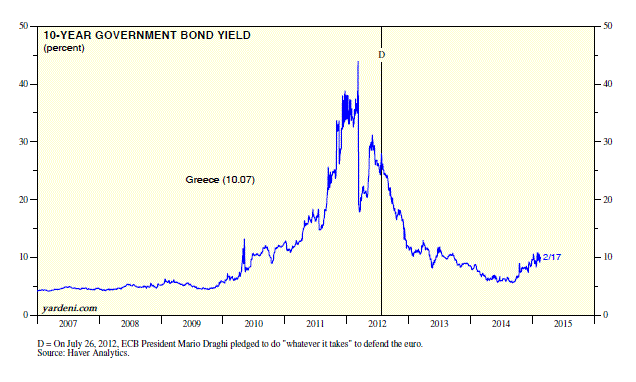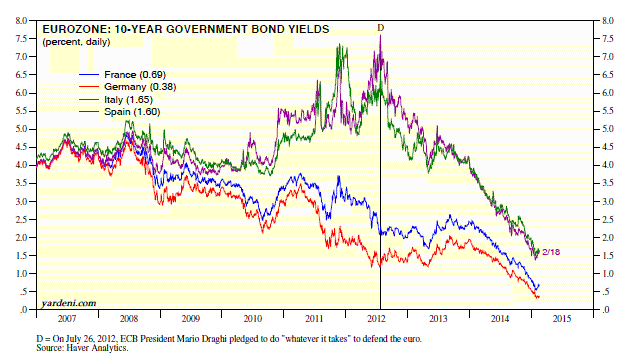
When the Greek drama unfolded during 2010 and 2011, the 10-Year Greek government bond yield soared to peak at a high of 43.92% on March 8, 2012. That triggered a divergence among Eurozone bond yields, with peripheral yields moving higher while core yields trended lower. In the latest act of the Greek drama, the 10-year Greek yield rose from last year’s low of 5.57% on September 5 to 9.66% currently, still well below the prior peak. The yields of comparable bonds in Italy and Spain remain relatively subdued at 1.62% and 1.60%, though still higher than in France at 0.69% and Germany at 0.38%.
Helping to keep a lid on bond yields in the Eurozone is the perception that the financial uncertainty and turmoil triggered by a Grexit might worsen deflation, and would be minimized by the ECB, which will start its QE program in March.
Today's Morning Briefing: Greece or Dare? (1) Germany asks Greece: “Yes or no?” (2) They invented math. (3) Three reasons why Greece doesn’t matter, so far. (4) From nothing to fear to fearing nothing. (5) Eurozone stocks and bonds remain calm, except in Greece. (6) QE is coming to the Eurozone. (7) Some stocks are relatively cheap in the Eurozone compared to US. Some are not. (8) US stocks aren’t cheap, but they are cheaper than bonds. (9) Contrarians beware: Four times more bulls than bears. (10) Dovish FOMC minutes support one-and-done scenario for Fed rate hiking. (11) So does federal funds outlook implied by futures.

